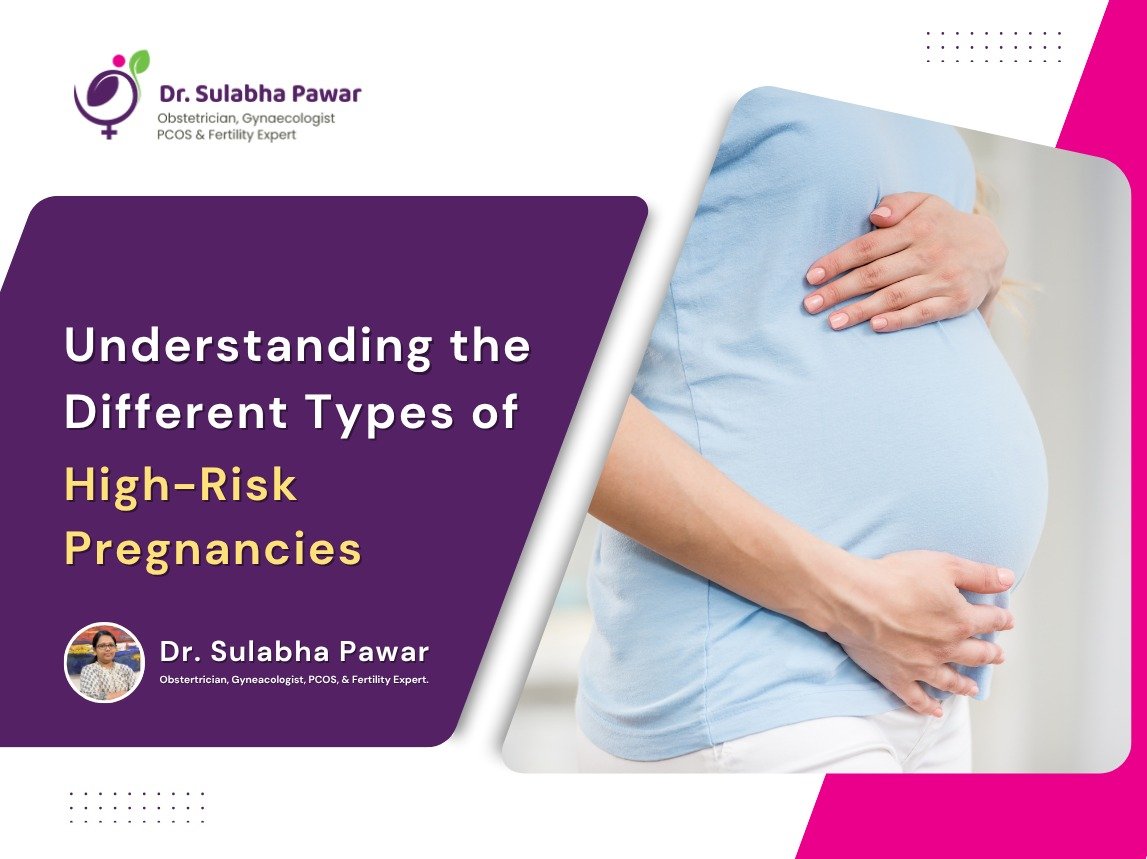Understanding the Different Types of High-Risk Pregnancies – Causes, Risks & Care - Dr. Sulabha Pawar
Pregnancy is a unique and transformative journey. However, for some women, certain health conditions and complications may turn pregnancy into a high-risk experience. A high-risk pregnancy means there’s a greater chance of complications for the mother, baby, or both. Understanding the different types of high-risk pregnancies can help expecting mothers seek the right care and improve outcomes.
What Is a High-Risk Pregnancy?
A pregnancy is considered high-risk when there are potential complications that could affect the health of the mother, the baby, or both. These risks may arise from existing health conditions, complications that develop during pregnancy, or lifestyle factors.
Types of High-Risk Pregnancies
Here are some of the most common types of high-risk pregnancies:
1. Advanced Maternal Age Pregnancy (35+ Years)
Women above 35 are at a higher risk for pregnancy complications such as gestational diabetes, preeclampsia, and chromosomal abnormalities like Down syndrome.
2. Teenage Pregnancy
Pregnancies in girls under 17 are often considered high-risk due to potential issues like low birth weight, premature birth, and inadequate prenatal care.
3. Multiple Pregnancy (Twins, Triplets or More)
Carrying more than one baby increases the risk of premature delivery, gestational diabetes, and preeclampsia.
4. Gestational Diabetes
A condition where blood sugar levels rise during pregnancy, potentially leading to complications during delivery and increased chances of cesarean section.
5. Preeclampsia and Eclampsia
Characterized by high blood pressure and protein in urine, preeclampsia can progress to eclampsia—a severe condition causing seizures.
6. Placenta Previa
When the placenta covers the cervix, it can lead to bleeding during pregnancy and complications during delivery, often requiring a C-section.
7. Preterm Labor
Labor that begins before 37 weeks can lead to premature birth and related health challenges for the baby.
8. Chronic Medical Conditions
Women with pre-existing conditions such as diabetes, hypertension, kidney disease, thyroid disorders, epilepsy, or autoimmune diseases require special care throughout pregnancy.
9. Infections During Pregnancy
Infections like toxoplasmosis, listeria, rubella, Zika virus, or sexually transmitted infections can pose serious risks to both mother and baby.
10. History of Pregnancy Complications
Women who’ve previously had miscarriages, stillbirths, or babies with birth defects are more likely to experience high-risk pregnancies in subsequent attempts.
11. Lifestyle-Related Risks
Smoking, alcohol consumption, drug abuse, and poor nutrition can significantly elevate pregnancy-related risks.
How to Manage a High-Risk Pregnancy
- Regular prenatal check-ups
- Follow medical advice and treatment plans
- Maintain a balanced diet and exercise routine
- Monitor symptoms and report any changes immediately
- Avoid harmful substances
- Seek emotional and mental health support
When to See a Specialist?
If you fall into any of the above categories, consult a maternal-fetal medicine (MFM) specialist or an experienced gynecologist for personalized care.
Conclusion
While a high-risk pregnancy can sound alarming, many women with high-risk factors go on to have healthy pregnancies and babies with the right care and attention. Early detection, consistent prenatal care, and lifestyle modifications play a crucial role in ensuring the safety of both mother and baby.




